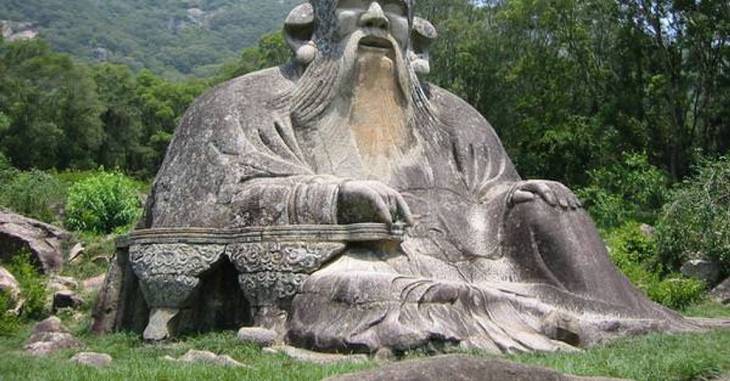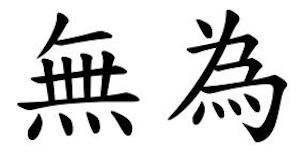Taoism: How the Philosophy of Wu Wei Can Enhance Your Life

A monumental statue at Mt. Qingyuan of Lao-Tzu, the Chinese philosopher who lived c. 500 BCE and who is credited with fouding Taosim). Photo: Thanato / Wikipedia.
Taoism (also known as Daoism) is a religious philosophy from ancient China that has influenced many Chinese fields and practices, including Zen Buddhism, Chinese astrology, alchemy, Feng Shui, traditional Chinese medicine, and even some martial arts.
Taoism, taken as a religion or a school of philosophical thought, holds that humans and animals should live in balance with the Tao, or the universe. Living in complete harmony with the Tao (or Dao) is a very positive way to live, especially considering the damage caused to the natural environment that has led to the current global climate crisis.
Taoists, those who subscribe to the philosophical religion, believe in aligning oneself to the natural way of cosmos, and practice the philosophy of Wu Wei. Wei Wu Wei literary means "doing-without-doing" or "action through inaction." It refers to doing things that do not include striving and struggling, following the simple and spontaneous course of nature.
In essence, "effortless action" or "inexertion."
Understaning the Philosophy of Wei Wu Wei in Taoism

Wu wei or non-doing.
The philosophy of wu wei is an impactful paradoxical concept thought to have started from a conversation between Huang Di, a mythical Chinese emperor and culture hero and patron saint of Taoism, and his ministers about 'action without action' to help people follow the simple and spontaneous course of nature.
In other words, wu wei means not being frustrated from doing something because you naturally can't do everything, and also not doing too much or trying too hard as it may bring you more frustration. So, you just embrace inexertion and do things naturally without struggling. As the central text of Daoism, the Dao De Jing, states: “The Way never acts, yet nothing is left undone.”
Wei Wu Wei is thus the practice of taking no action that is not in accord with the natural course of the universe (non-doing). It is not an invitation to relax or fall into laziness and apathy, but rather to do things more effortlessly. Some things in life cannot be achieved by simply trying harder.
With the practice of wu wei, people can be fully engaged in the moment without the usual pressures they place on themselves, on others, or on the natural environment. The practice involves acting in the right moment and in harmony with the universe without being disturbed by the results. And as another maxim of wu wei states, "When wu wei is done, nothing is left undone."
How the Concept Can Work for You
Although some critics say that Taoism is a pleasant invitation to relax, fall into laziness and apathy, in truth this concept can be the key to the noblest kind of action.
When practicing Wei Wu Wei, the aim is being at peace while engaged even in the most frenetic tasks so that you can carry those out with maximum skill and efficiency. It emphasizes doing what is natural and "going with the flow."
For example, if your workplace is always busy and people around you don't take time for breaks or other activities (unnatural), go ahead and find a corner where you can take a break so that you do not exert yourself too much.
This practice can help people who have time pressure and stress at work have some time to relax so that when they get back to work, they can do their work more effectively, express themselves creatively without struggle, and be in the zone’ – at one with what they are doing.
In Taoism, the goal is to develop wisdom, not just skill. If you take pride in merely being a skilled player who wins competitions, then that's just vain and it conflicts with Wu Wei's concept. In other words, it's seen as showing off, which is considered unnecessary in Taoism.
With Taoism, the goal of playing, say, the piano is not winning a competition, but finding joy in practicing it. People gain and benefit from realizing that they don't always have to win after doing something, but rather enjoy the process.
Ultimately, Taoists believe the goal of life is "unconditional love." You can reach this goal through understanding yourself, observing everything else in the natural world, gaining wisdom from it, developing good qualities like empathy, and enjoying/having fun in everything you do and in every moment.
Taoists believe that one’s life is worth it if they are happy every day. With this belief, Taoist try to be fully engaged at the moment without worrying about what will happen later. They embrace their lives and make the best of it.
That can be truly liberating and mind-freeing in this fast-paced and perilous world we are now living.




















